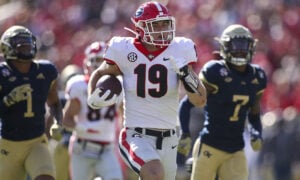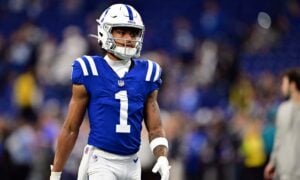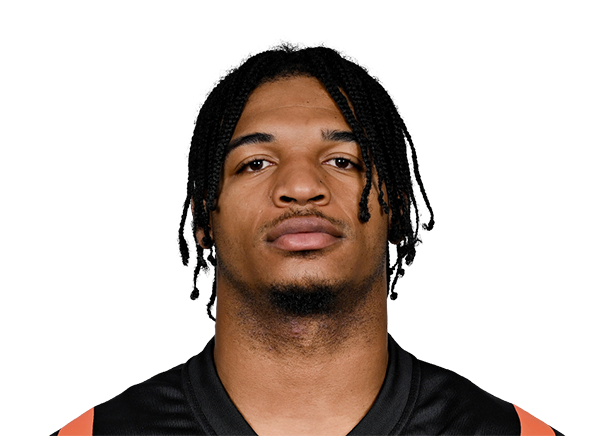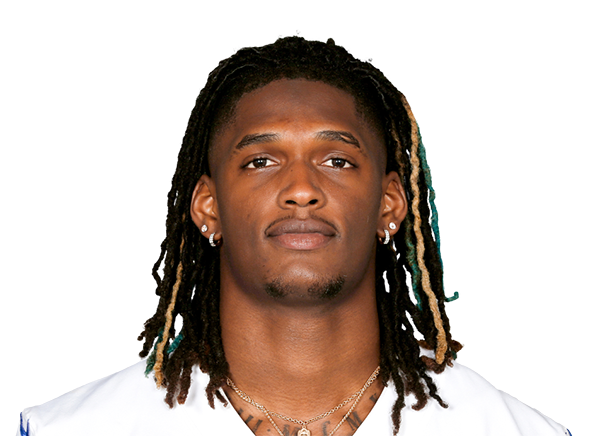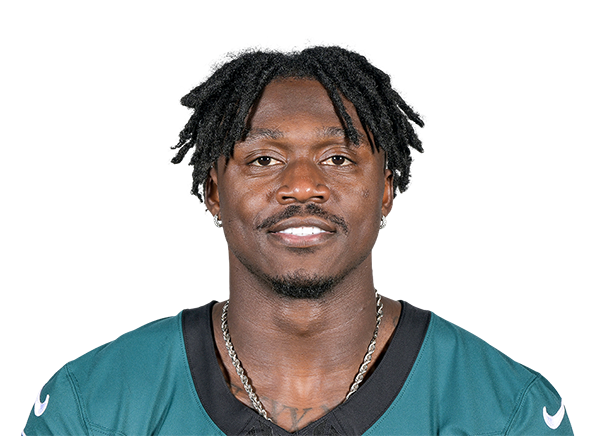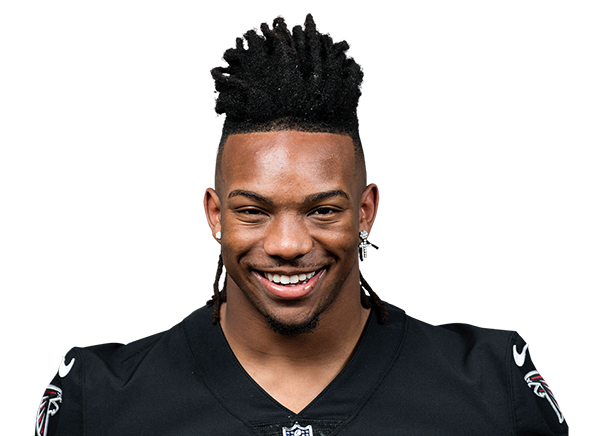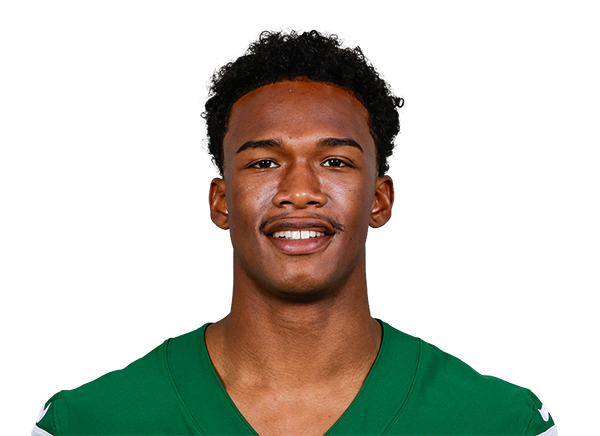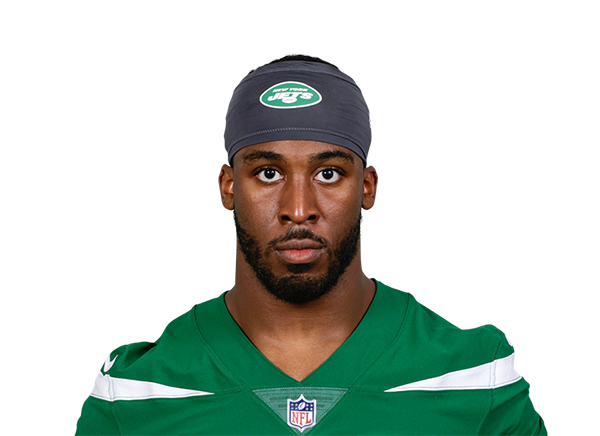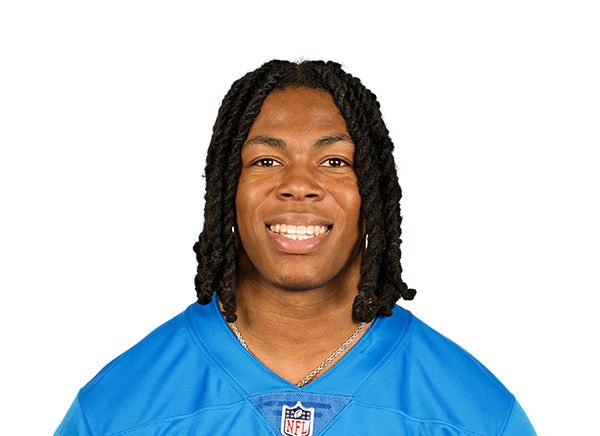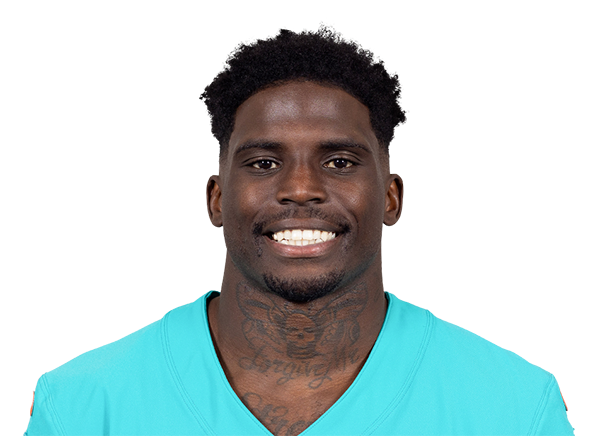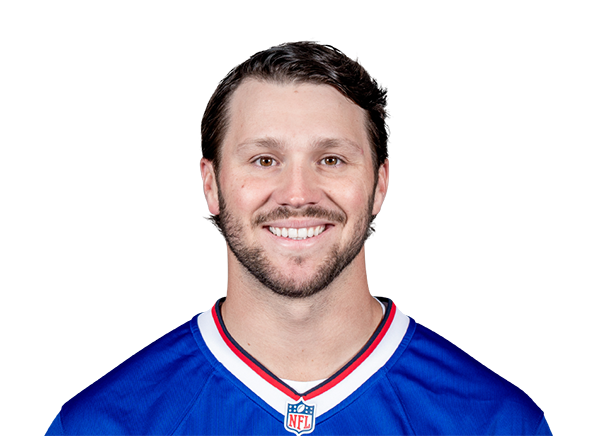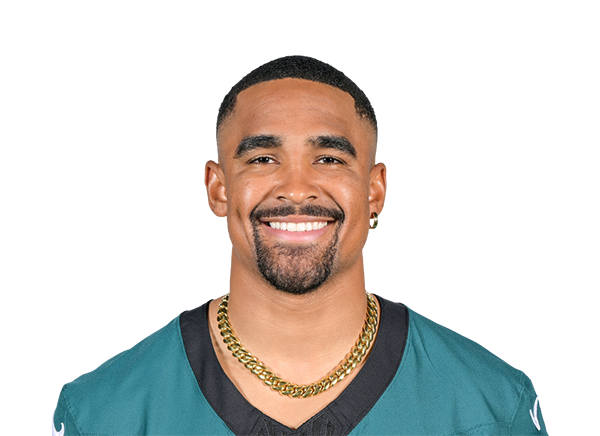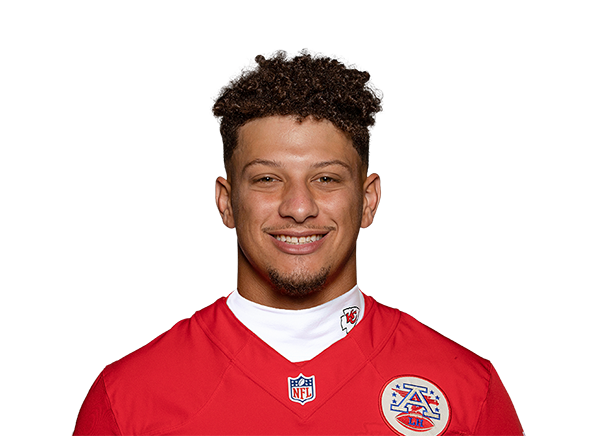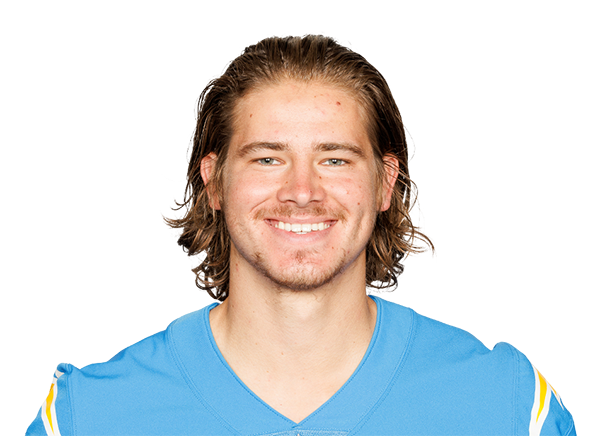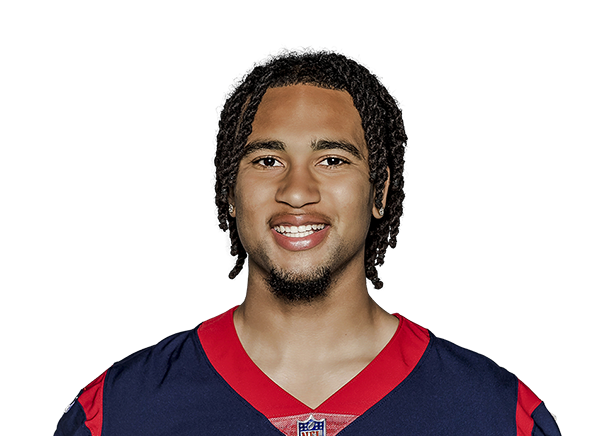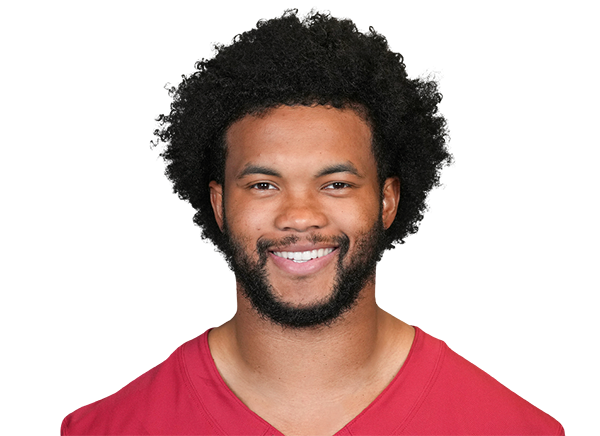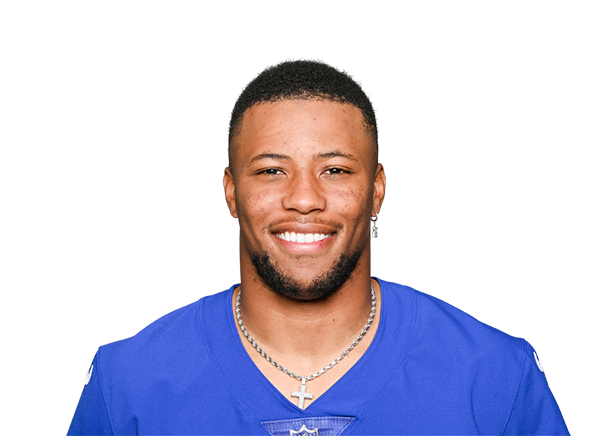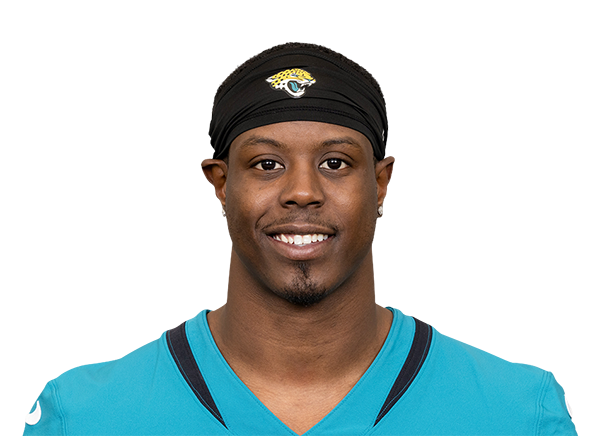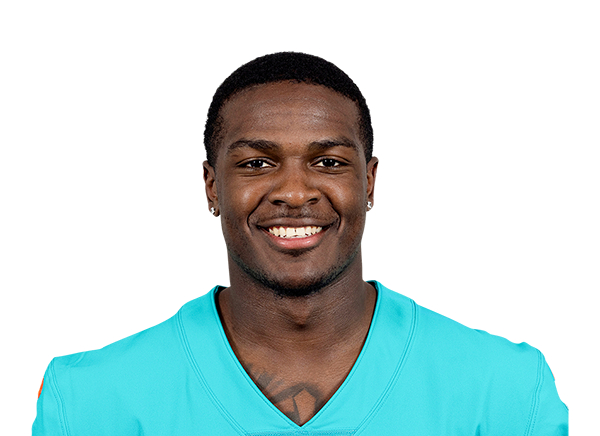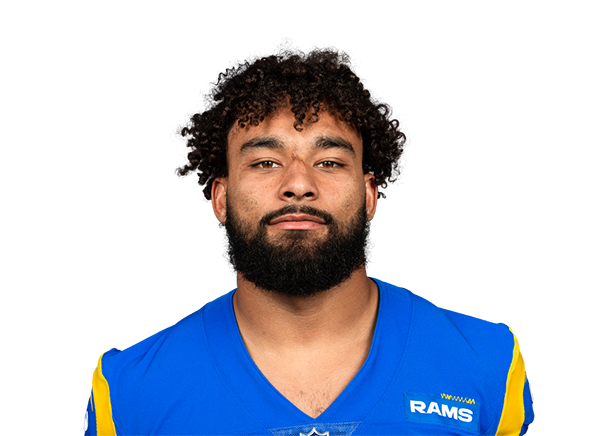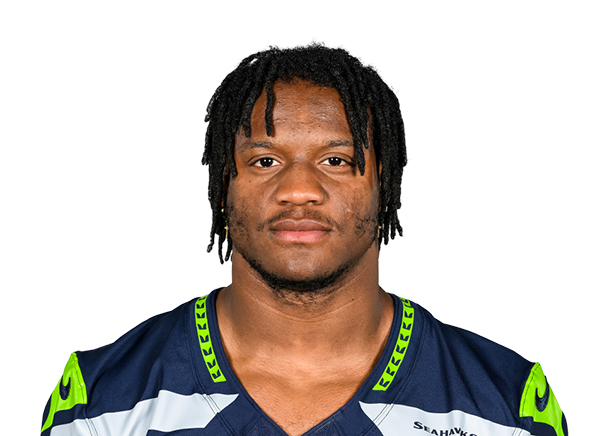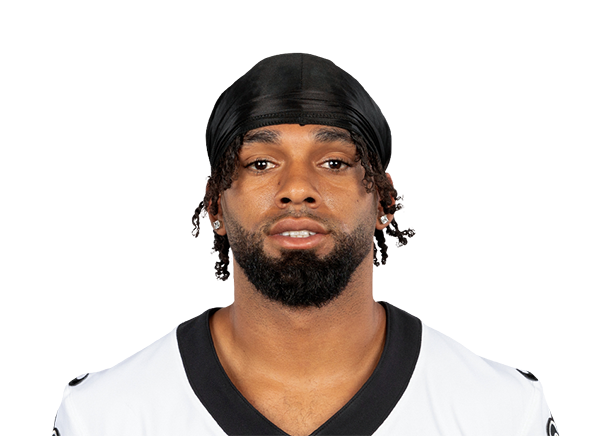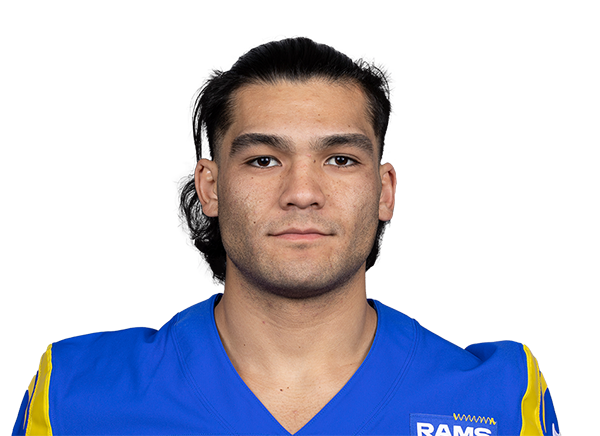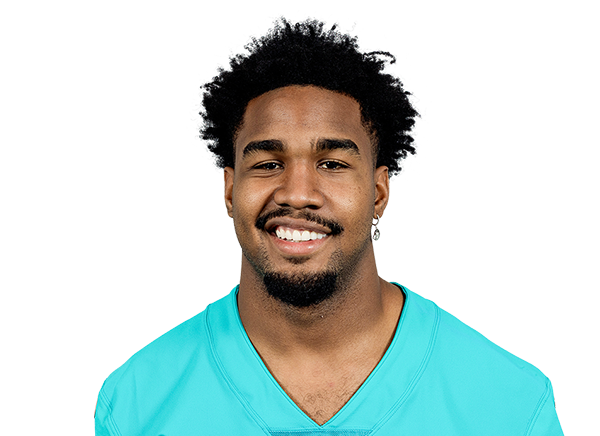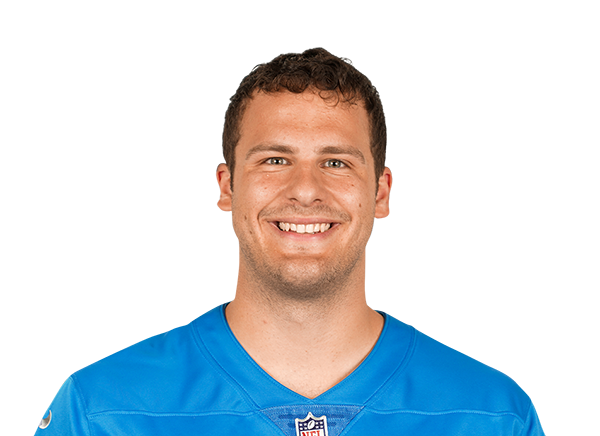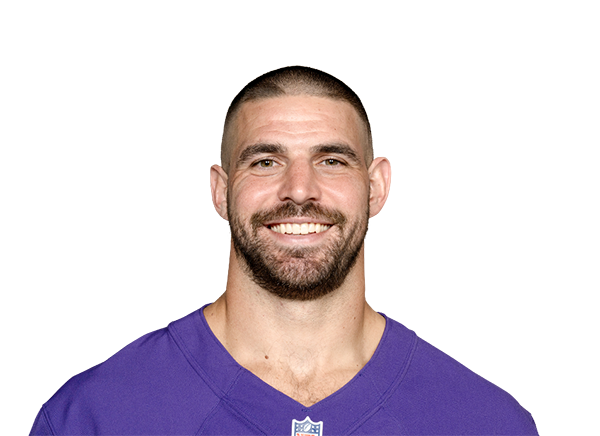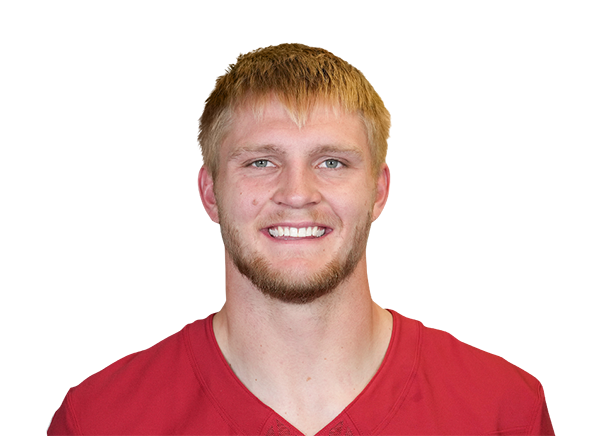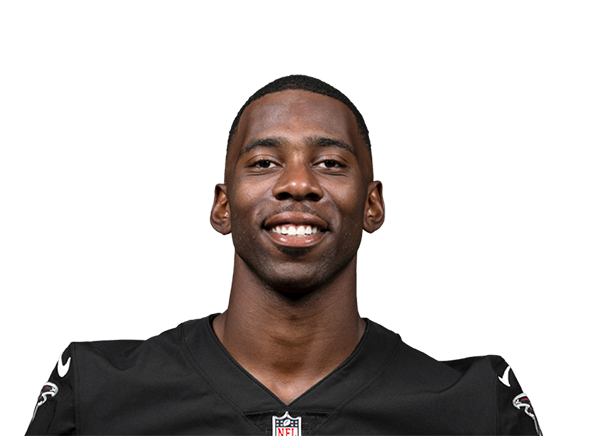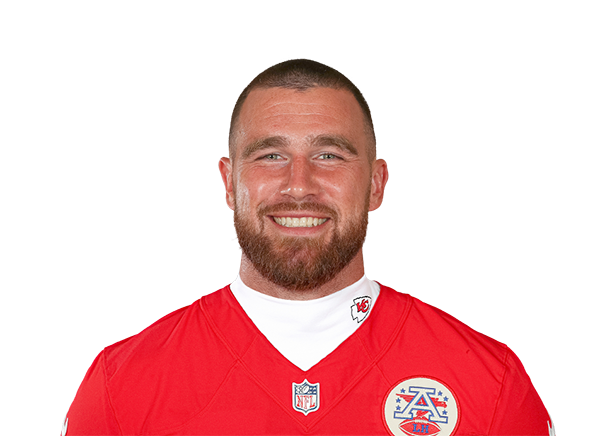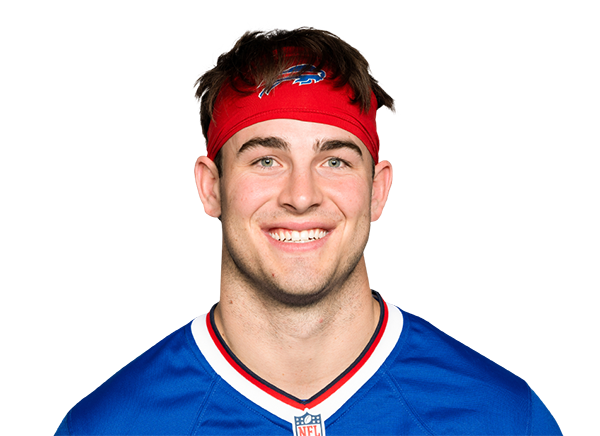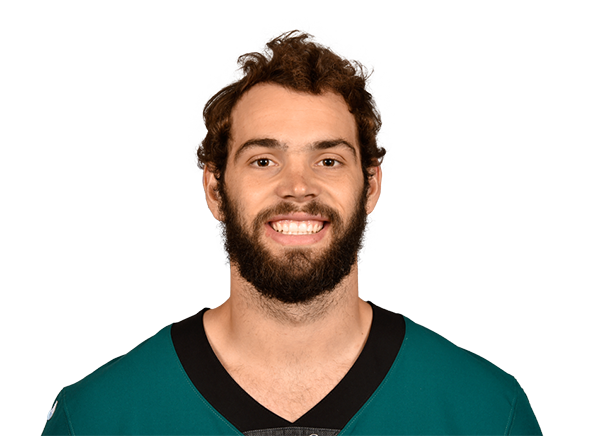Who is Garrett Celek?
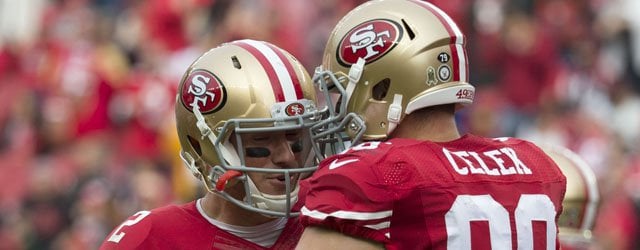
For yet another week, a key cog in the 49ers offense disappears and the next man up is a relative unknown in fantasy circles. Following the trade of Vernon Davis to be Peyton Manning’s new security blanket, Garrett Celek (younger brother of the Eagles’ Brent Celek) steps in as San Francisco’s starting tight end. The 27-year-old veteran entered the season with only eight receptions in three years with the 49ers.
As his collegiate statistics corroborate, Celek was primarily utilized as a blocker at Michigan State. He caught 14 passes for 135 yards and three touchdowns over four seasons, and nearly half of these totals came during his freshman year. He suffered a season-ending shoulder injury his junior season, but otherwise was healthy and played in nearly every game. Regardless of whether this speaks more of the offense and its scheme or Celek’s skillset, these statistics are uninspiring for projecting his future fantasy relevance.
[am4show have=’g1;’ guest_error=’sub_message’ user_error=’sub_message’ ]
The 6-foot-4, 252 pound Celek did not attend the 2012 NFL Combine, but posted impressive numbers at his Pro Day in relation to his peers’ combine performances. His results would have placed him in the top ten tight ends in nearly every category, including sixth in the 40-yard dash (4.72 seconds), tied for sixth in the broad jump (9’11”) and tied for fifth in the 3-cone drill (7.12 seconds).
To Celek’s credit as a receiver, he has good range and soft hands. His size and deceptive speed has the potential to create mismatches if used in the right situations. Of course, his primary asset is as an above-average blocking tight end. He played left tackle in high school, so the transition from being exclusively a blocker to being involved in the offense has been gradual.
Celek went undrafted but signed a free agent deal with San Francisco in early May 2012. Since then, his average receptions per season decreased from his college days, going from 3.5 per season in 2008-2011 to 2.66 from 2012-2014. It is an understatement to note that he has not been a factor in the passing game.
To his advantage going forward is that there are no other proven tight ends on the 49ers roster. Former second-round pick Vance McDonald, once a highly coveted dynasty asset, has 19 career receptions f or 213 yards and no touchdowns in 31 games over the last three years. Blake Bell was selected in the fourth round in 2015 but has played minimally as a rookie, thus far catching three passes for 17 yards. Rory “Busta” Anderson was a seventh round pick this year but has not seen the field. All three are signed through at least 2016, with the contracts for the two rookies expiring following the 2018 season.
As for Celek, the fourth-year tight end was a restricted free agent this past offseason but signed a one-year contract for the veteran’s minimum salary to remain with San Francisco. At the time Davis and Derek Carrier were ahead of him on the depth chart, though Davis is now in Denver while Carrier was traded to Washington for a draft pick following a season-ending injury to Niles Paul. It is likely that nobody envisioned Celek as the starting tight end when he quietly re-upped with the 49ers, particularly following what amounted to a lost season in 2014 due to back and ankle injuries.
With a new coaching regime in San Francisco, and despite a crowded (albeit uninspiring) depth chart, Celek made the 53-man roster heading into the regular season. As the primary backup tight end, in the first five games of the season he caught 14 passes for 131 yards and a touchdown. He then caught only one pass for eight yards in his next three games, then suffered a concussion in week eight against St. Louis.
Though Celek’s status for week nine was in question, he ultimately played and was the clear beneficiary in the red zone with Davis gone and Anquan Boldin inactive with a hamstring injury. He caught two short touchdown passes from Blaine Gabbert, and was the new starting quarterback’s favorite target at the goal line.
For the remainder of the 2015 season, Celek looks to be the primary receiving tight end as he has shown better pass-catching abilities than McDonald or Bell (though the rookie may get more snaps so San Francisco can see what they have in their fourth-round pick). With Boldin banged up, the options at wide receiver are limited as well because the likes of Torrey Smith, Bruce Ellington, Quinton Patton and Jerome Simpson have failed to step up. As a result, to date the 49ers rank 28th in receptions, 30th in receiving yards, 30th in receiving touchdowns and 31st in receiving yards per game.
Though the upside is very limited for Celek in this unstable offense, he should continue to receive targets from either Gabbert or Colin Kaepernick as both quarterbacks have shown a preference for short throws (which also helps to explain Smith’s ineffectiveness as a deep threat). There are also few other red zone options, particularly with Carlos Hyde banged up and a revolving door of options behind him in the backfield.
While Celek’s performance the rest of this season could translate into another contract, he doesn’t have the skillset to be a reliable TE1, particularly if San Francisco doesn’t bring in a new starting quarterback that can get the ball downfield. He is a better NFL player than he is a fantasy asset, and though he is rosterable and could turn in TE2 numbers this year (and is therefore worth rostering) his ceiling and floor are both too low to rely upon on a weekly basis.
[/am4show]
- Dynasty Capsule: Jacksonville Jaguars - February 5, 2018
- My Beginner’s Guide to Reality Sports Online - May 12, 2017
- The DLF Mailbag - February 24, 2017








